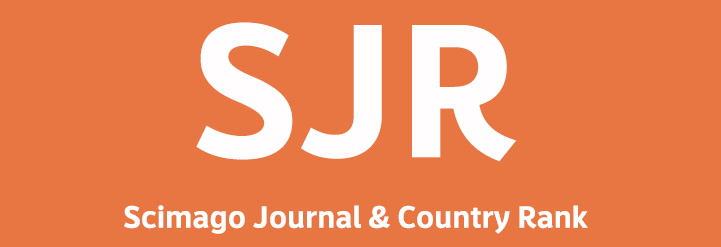Co-optimization of Carbon Capture, Utilization, and Storage (CCUS) Project Using Iterative Latin Hypercube Sampling (ILHS)
DOI:
https://doi.org/10.29017/scog.v48i2.1818Keywords:
Carbon Capture and Storage, Enhanced Oil Recovery, Iterative Latin Hypercube Sampling, Net Present Value, CO₂ Injection Rate, Economic OptimizationAbstract
Economic optimization of Carbon Capture, Utilization, and Storage (CCUS) projects, which simultaneously enhance oil recovery through CO₂-EOR while permanently storing CO₂, is critical to ensuring project viability amidst energy market volatility and operational uncertainties. This study develops and applies an Iterative Latin Hypercube Sampling (ILHS) algorithm, an adaptive, stratified sampling technique that accelerates convergence by iteratively re-weighting high-probability sub-regions, to determine the optimal CO₂ injection rate, using Net Present Value (NPV) as the unified economic criterion. The algorithm is coupled, via a FORTRAN driver, to the CMG-GEM compositional simulator and applied to the PUNQ-S3 field case; the economic model explicitly includes the CO₂ purchase price (US$60 t⁻¹), carbon credits (US$40 t⁻¹) and capital expenditure (CAPEX = US$40 million + US$12 000 × Qᵢ) to capture key financial drivers. Three economic scenarios combining oil prices of US$70 bbl⁻¹ and US$30 bbl⁻¹ with discount rates of 0 % and 10 % are evaluated to quantify NPV sensitivity. ILHS converged in ≤130 simulation runs (≈3 h CPU time), identifying scenario-specific optimum injection rates of 8.1–8.6 × 10³ m³ day⁻¹ that deliver NPVs ranging from US$1.9 billion to US$4.6 billion. By bridging the gap between technically oriented and financially oriented optimization, the proposed framework offers a scalable, computationally efficient approach for co-designing oil recovery and CO₂ storage under dynamic market conditions, thereby advancing field-scale CCUS decision making.
References
Ajoma, E., Sungkachart, T., Ge, J., & Le-Hussain, F. (2020). Water-saturated CO2 injection to improve oil recovery and CO2 storage. Applied energy, 266, 114853.
Awan, M. M. A., & Kirmani, F. U. D. (2025). CO2 injection for enhanced oil recovery: Analyzing the effect of injection rate and bottom hole pressure. Petroleum Research, 10(1), 129-136.
Chen, B., and Pawar, R.J. (2019). Characterization of CO2 storage and enhanced oil recovery in residual oil zones. Energy, Volume 183, Pages 291-304. DOI: 10.1016/j.energy.2019.06.142
Chen, J., Gildin, E., & Kompantsev, G. (2024). Optimisation of pressure-management strategies for geological CO₂ sequestration using surrogate model-based reinforcement learning. International Journal of Greenhouse Gas Control, 138, 104262. https://doi.org/10.1016/j.ijggc.2024.104262
Dai, Z., Middleton, R., Viswanathan, H., Fessenden-Rahn, J., Bauman, J., Pawar, R., Lee, S.Y., and McPherson, B. (2016). An integrated framework for optimizing CO2 sequestration and enhanced oil recovery. Environmental Science & Technology Letters, Volume 1, Issue 1, Pages 49-54. DOI: 10.1021/ez4001033
Dudek, M., Stopa, J., Rychlicki, S., and Wojnarowski, P. (2020). Optimization of CO2-EOR process management in Polish mature reservoirs using smart well technology. Journal of Petroleum Science and Engineering, Volume 186, Article 106682. DOI: 10.1016/j.petrol.2019.106682
Gao, M. et al. (2023). Machine-Learning-Based Approach to Optimize CO₂-WAG Flooding in Low-Permeability Oil Reservoirs. Energies 16 (17), 6149. https://doi.org/10.3390/en16176149
Guo, B., Zheng, Z., Celia, M.A., and Stone, H.A. (2020). Axisymmetric flows from fluid injection into a confined porous medium. Physics of Fluids, Volume 32, Issue 11. DOI: 10.1063/5.0022758
Leach, A., Mason, C. F., & van‘t Veld, K. (2011). Co-optimization of enhanced oil recovery and carbon sequestration. Resource and energy Economics, 33(4), 893-912.
Liu, B., & Shi, C. (2024). Optimisation of injection rate for CO₂ geological storage based on differential evolution. E3S Web of Conferences, 536, 03017. https://doi.org/10.1051/e3sconf/202453603017
Musayev, K., Shin, H., & Nguyen-Le, V. (2023). Optimization of CO₂ injection and brine production well placement using a genetic algorithm and ANN-based proxy model. International Journal of Greenhouse Gas Control, 127, 103915. https://doi.org/10.1016/j.ijggc.2023.103915
Intergovernmental Panel on Climate Change (IPCC). (2023). Special Report on Carbon Dioxide Capture and Storage. Retrieved from https://www.ipcc.ch/report/special-report-on-carbon-dioxide-capture-and-storage/
International Energy Agency (IEA). (2023). Carbon Capture, Utilisation and Storage. Retrieved from https://www.iea.org/energy-system/carbon-capture-utilisation-and-storage
Iskandar, U. P., & Kurihara, M. (2022). Long Short-term Memory (LSTM) Networks for Forecasting Reservoir Performances in Carbon Capture, Utilisation, and Storage (CCUS) Operations. Scientific Contributions Oil and Gas, 45(1), 35-51.https://doi.org/10.29017/SCOG.45.1.943
Iskandar, U. P., & Syahrial, E. (2009). Carbon Capture And Storage (Ccs)-Enhanced Oil Recovery (Eor): Global Potential In Indonesia. Scientific Contributions Oil and Gas, 32 (3), 228–238.
Razavi, S., Tolson, B. A., & Burn, D. H. (2012). Review of surrogate modeling in water resources. Environmental Modelling & Software, 32, 61-82.
Simpson, T. W., Mauery, T. M., Korte, J. J., & Mistree, F. (2021). Comparison of response surface and kriging models for multidisciplinary design optimization. Journal of Global Optimization, 79(2), 315-339.
Sun, Y. et al. (2023). Research Progress on Displacement Mechanism of Supercritical CO₂ in Low-Permeability Heavy-Oil Reservoirs. Molecules 28 (16), 6154. https://doi.org/10.3390/molecules28166154
Viana, F. A., Haftka, R. T., & Watson, L. T. (2016). Efficient global optimization algorithm assisted by multiple surrogate techniques. Computers & Chemical Engineering, 91, 156-169.
Vidiuk, K., & Cunha, L. B. (2007). A Simulation Study of Effects of Operational Procedures in CO Flooding Projects for EOR and Sequestration. In Canadian International Petroleum Conference. Petroleum Society of Canada
You, J., Ampomah, W., & Sun, Q. (2020). Co-optimization of CO2 storage and enhanced oil recovery using machine learning based proxy modeling. Energy, 195, 117018
Downloads
Published
Issue
Section
License
Copyright (c) 2025 © Copyright by Authors. Published by LEMIGAS

This work is licensed under a Creative Commons Attribution 4.0 International License.
Authors are free to Share — copy and redistribute the material in any medium or format for any purpose, even commercially Adapt — remix, transform, and build upon the material for any purpose, even commercially.
The licensor cannot revoke these freedoms as long as you follow the license terms, under the following terms Attribution — You must give appropriate credit , provide a link to the license, and indicate if changes were made . You may do so in any reasonable manner, but not in any way that suggests the licensor endorses you or your use.
No additional restrictions — You may not apply legal terms or technological measures that legally restrict others from doing anything the license permits.














